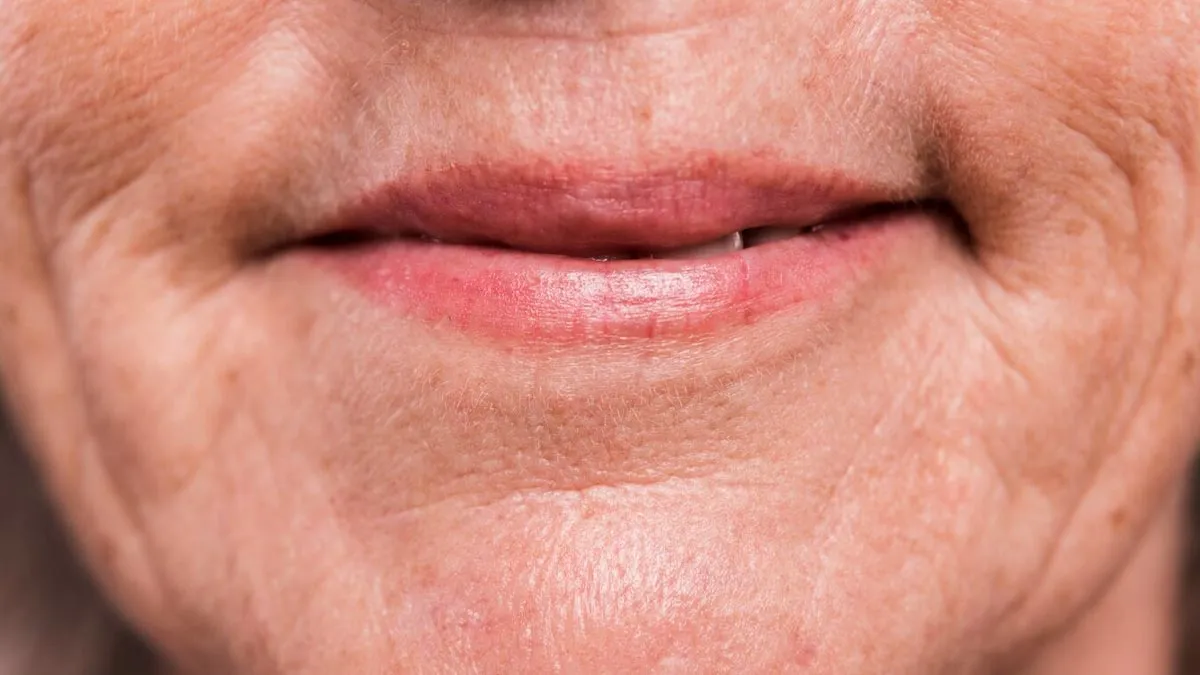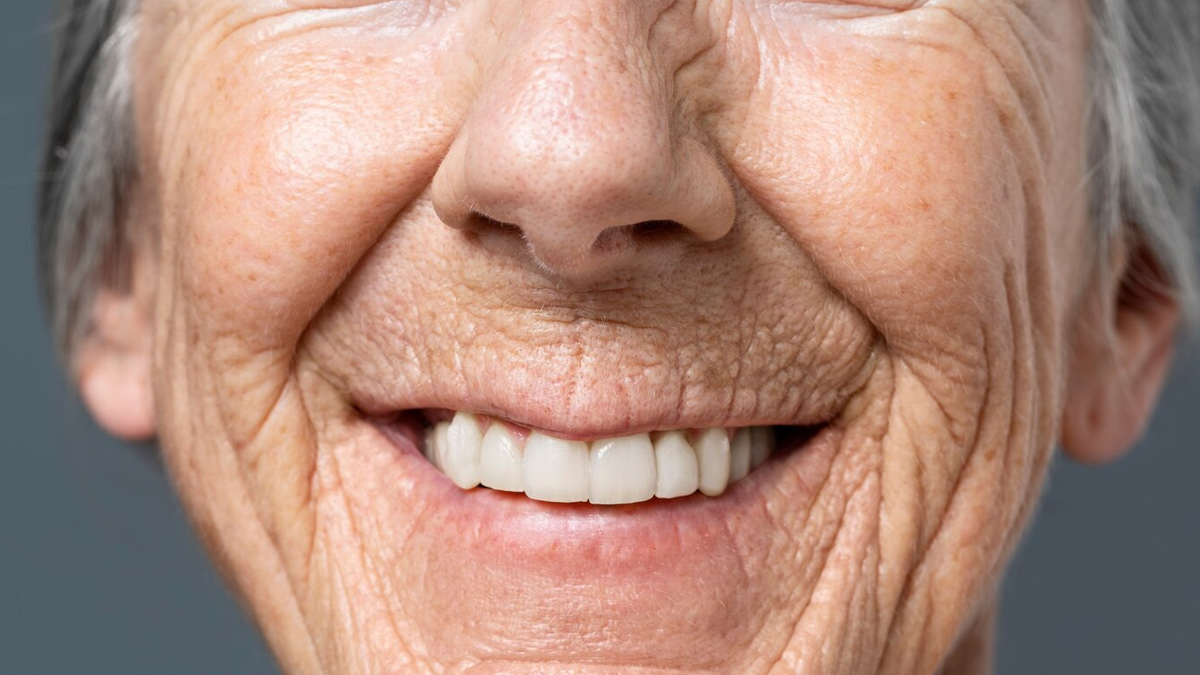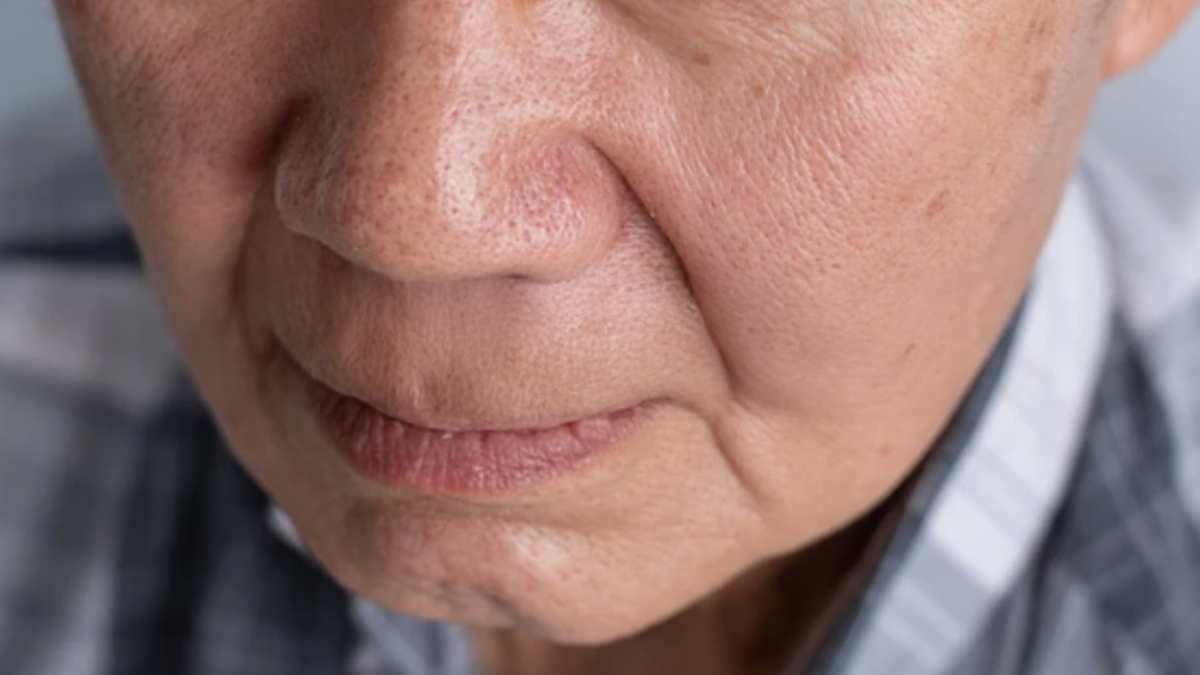
When we say 'ageing,' we envision creases around the eyes, slack cheeks, or grey hair. But ever sit back and consider the possibility that your mouth will age more quickly than your whole face? Thinner lips, shrinking gums, and the skin of your mouth will reveal more about your biological age than you know, and, nine out of ten times, that's where early ageing erupts.
Table of Content:-
“Because I have been a dermatologist, I have always had patients who are completely oblivious to the fact that changes they notice in the region around the mouth are not cosmetic, possibly, and most likely, are evidence of compromise of skin, wasting of the muscle, or even potential health problems,” said Dr Vidushi Jain, Dermatologist and Medical Head Derma Links in Noida and Ghaziabad.
Signs That Your Mouth Is Ageing Faster Than You
1. Thinning Lips

Loss of volume in the lips is also one of the first signs of ageing in the mouth area. Collagen is lost more and more with increasing age, and thinning lips is the result. This can be compounded by sun damage over a prolonged period, smoking, or dryness. A large-scale study of 1,000 Korean women aged 20–69 found that as age increases, lip height decreases, lip width increases, and lip wrinkles grow in number, while lip colour fades.
Thin lips can become set as early as in your 30s, but some impact can be mitigated by taking precautionary steps against it, such as the use of lip balms that contain SPF and moisturising.
2. Thin Lines Around the Mouth (Perioral Wrinkles)
"Thin lines, sometimes referred to as 'smoker's lines' or 'lipstick lines,' are vertically oriented around the lips. Smoking is one of the quintessential offenders, and puckering frequently, excessive sun exposure, and natural skin elasticity loss also contribute. They become more prominent with time unless treated," said Dr Jain.
3. Dry, Cracked Lips
Dry or chapped lips during the day may be less an indicator of dehydration and more an indicator of disruption of the natural moisture barrier, likely from ageing skin. Should your lips still be dry after rehydrating, then medical-grade balms and occlusive treatments may be needed.
4. Marionette Lines and Nasolabial Folds

Because elastin and collagen diminish with age, gravity takes over. "Nasolabial folds, deep folds that extend from the nose to the corners of the mouth, and marionette lines, lines extending downwards from the corners of the mouth, can give the impression of a sad, weary face," added Dr Jain. They are developed in your 40s and onwards but can occur earlier based on genes, stress, or lifestyle.
5. Gum Recession and Oral Skin Discoloration
Although a mouth condition, recession of the gum and colour change of the mucosa could be the first indicator of ageing or sun damage. This shouldn't be overlooked, as they can be indicative of underlying systemic issues, such as chronic inflammation or nutritional deficiencies.
6. Loss of Definition in the Cupid's Bow
The V-shaped area of the upper lip, Cupid's bow, becomes flattened with age. The change is hardly noticeable but can make the mouth look less young and coarse.
What Can You Do?
Prevention of premature ageing on the mouth involves a mix of good skincare and lifestyle modification. Here are some tips shared by Dr Jain:
- Sun Protection: Put broad-spectrum SPF on your face and lips daily.
- Hydration: Maintain a daily hydration regimen and apply lip balms containing hyaluronic acid.
- Smoking Cessation: Perhaps the single most significant action toward lip, if not total skin, wellness.
- Topical Solutions: Peptides and retinoids improve the elasticity of skin and diminish fine lines.
- In-Clinic Treatments: Laser treatment, dermal fillers, microneedling, and chemical peels may help reverse volume and texture accumulation.
Bottomline
Dr Jain concluded, “Your mouth is your face's most expressive and sensitive feature, so do not allow it to reveal your age too soon until you are ready. Increased awareness of the initial warning signs and a serious skin care regimen can work wonders in maintaining a healthy, shining smile, even as years pile up. If you are concerned about your mouth, consult a board-certified dermatologist for customised treatments.”
[Disclaimer: This article contains information provided by an expert and is for informational purposes only. Hence, we advise you to consult your professional if you are dealing with any health issue to avoid complications.]
Also watch this video
How we keep this article up to date:
We work with experts and keep a close eye on the latest in health and wellness. Whenever there is a new research or helpful information, we update our articles with accurate and useful advice.
Current Version
